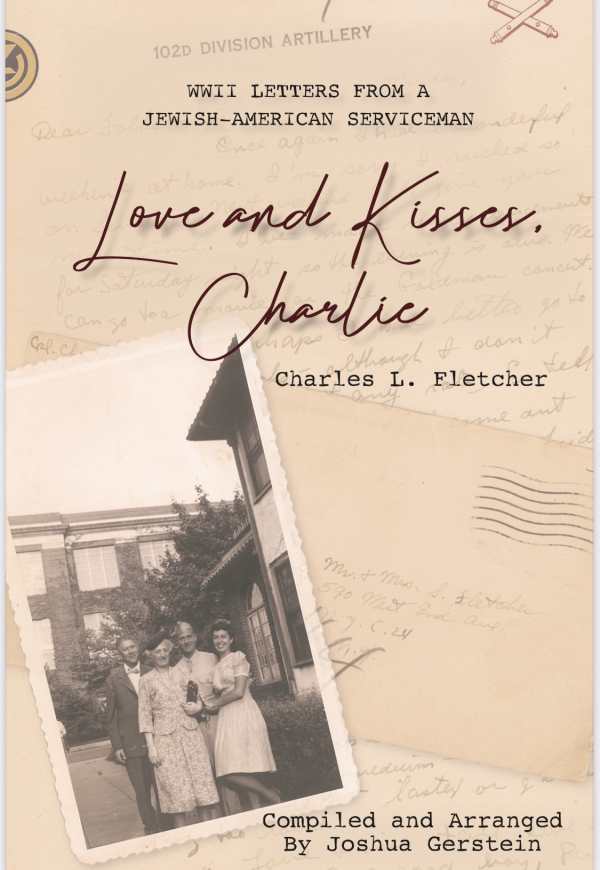Love and Kisses, Charlie
WWII Letters from a Jewish--American Serviceman
Love and Kisses, Charlie is a moving scrapbook of a family’s World War II correspondence.
Compiled by Joshua Gerstein, the letters, postcards, and telegrams collected in Love and Kisses, Charlie were a source of family comfort that fed into optimism about the outcome of World War II.
Made up of over six hundred pieces of correspondence between serviceman Charles L. Fletcher and his family, this is an intimate project. It covers the soldier’s daily activities from his induction into the US Army in the fall of 1943 until his honorable discharge in March of 1946. He took administrative and clerical posts on US and European bases, avoiding the front line but still coming within miles of active battles. Due to wartime censorship that prevented the disclosure of sensitive information, most of the exchanges rest in cheerful personal reflections, as on his living conditions, health and well-being, travels, and sources of entertainment. There are also dark accounts, though, as of men who broke under the strain of the war.
Some of the letters contain historical insights: Fletcher spoke with Polish Jews who survived Germany’s death camps, resulting in an uncommon and deep awareness of the Holocaust. His contact with Germans, too, lead to revelations of their “determined faith in the Nazi regime,” their “refusal to accept responsibility for obvious war crimes,” and their ingrained “haughtiness.” “When you see something like this, you begin to realize why Palestine would be such a grand place,” Fletcher writes. However, other decisive events of the war—including the D-Day landings, the US’s conflict with Japan, and the development of the atomic bomb—are treated in a comparatively superficial and brief manner.
As Fletcher did his best to write to his family daily, the news in his letters is repetitive; much of it will be of interest to his family members alone. Still, many of the missives are lively—peppered with slang and Hebrew and Yiddish terms. Translations, explanations of Jewish holidays and customs, and definitions of military terminology are given in footnotes. Photographs and reproductions of archival materials from Fletcher’s personal collection further flesh the book out. And the letters, which are grouped into thirteen chapters, are separated by Gerstein’s concise historical overviews of the pivotal events and significant people involved in the war, providing greater context to these personal exchanges.
The sensitive wartime communications collected in Love and Kisses, Charlie reveal the effects of World War II on a soldier and his family.
Reviewed by
Kristine Morris
Disclosure: This article is not an endorsement, but a review. The publisher of this book provided free copies of the book and paid a small fee to have their book reviewed by a professional reviewer. Foreword Reviews and Clarion Reviews make no guarantee that the publisher will receive a positive review. Foreword Magazine, Inc. is disclosing this in accordance with the Federal Trade Commission’s 16 CFR, Part 255.

